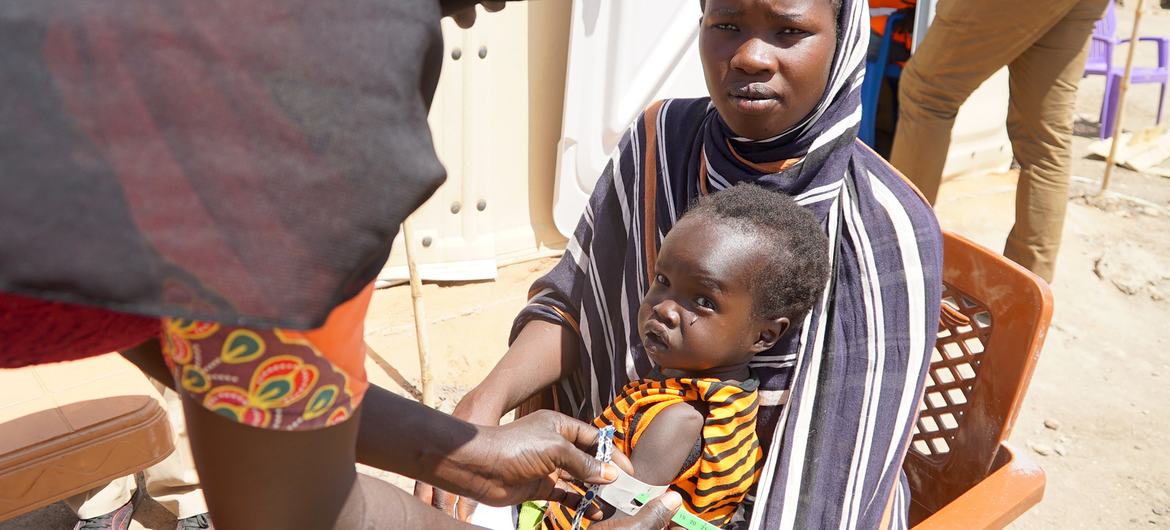Sudan violations in spot-light at UN Human Rights Council

The United Nations Human Rights Council convened an emergency session in Geneva on Thursday 11 May 2023 to address Sudan's deepening descent into violent conflict and humanitarian catastrophe. Member States adopted a resolution calling for detailed monitoring and reporting of alleged rights abuses, including the recent upsurge in violence, by the designated expert for Sudan.
The emergency session follows more than three weeks of intense fighting between the Sudanese Armed Forces (SAF) led by General Abdel Fattah Al Burhan and the Rapid Support Forces (RSF) led by Mohamed Hamdan Dagalo. Volker Türk, the UN rights chief, condemned the wanton violence that has inflicted further suffering upon the Sudanese people, resulting in hunger, deprivation, and displacement. Türk emphasized that Sudan, which had appeared as a "beacon of hope" following the fall of Omar al-Bashir's regime in 2019, has now suffered immense damage, shattering the hopes and rights of millions.
The conflict has already killed over 600 lives, forced more than 150,000 people to flee the country, and internally displaced over 700,000 individuals. The dire situation has also led to heightened levels of hunger, with record levels expected in the coming months.
Türk urgently called for a humanitarian truce and an end to human rights violations. Despite diplomatic efforts by various actors including the African Union, the Intergovernmental Authority on Development, the League of Arab States, and the United Nations, the leaders of SAF and RSF have not agreed to discuss ending hostilities. The High Commissioner urged the conflicting parties to commit to an inclusive political process and negotiate a peaceful resolution.
In response to the crisis, the Human Rights Council passed a resolution demanding comprehensive monitoring of the situation in Sudan. Radhouane Noucier, the recently designated independent human rights expert, will be responsible for this monitoring. The resolution called for an immediate cessation of hostilities, the return to a civilian-led government, and the protection of civilians, humanitarian workers, and accountability for human rights violations.
Independent UN-appointed human rights experts expressed deep concern over the immense suffering endured by Sudanese civilians, including sexual assault, gender-based violence, and shortages of essential resources such as food, water, and healthcare. They also denounced attacks on healthcare facilities, humanitarian workers, and human rights defenders.
Sudan's Permanent Representative to the UN in Geneva questioned the timing of the emergency session, stating that it had not received support from any African or Arab states. However, representatives from approximately 70 countries, including the United Kingdom, the European Union, and the United States, spoke during the session, expressing diverse opinions on the need for the Special Session and the international community's role in resolving the crisis. The emergency session reflects the urgency of the situation in Sudan and the international community's determination to address the escalating conflict and humanitarian crisis. Efforts to establish a humanitarian truce, protect civilians, and promote an inclusive political process remain critical to achieving peace and stability in the country.

